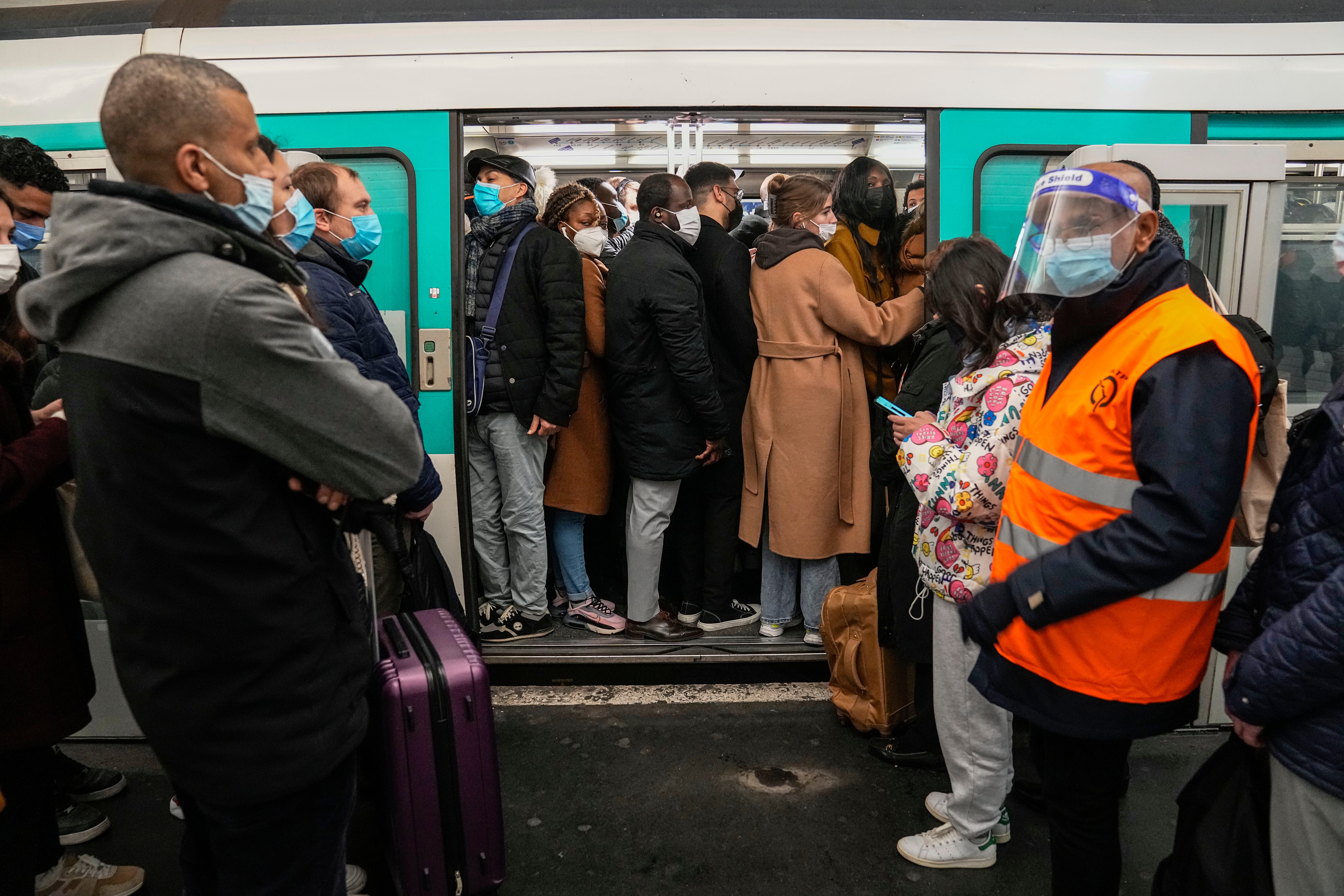Paris transport strike disrupts subway, trains to suburbs
Commuters in Paris are facing disruptions as public transport workers hold a one-day strike to protest what they say is an insufficient salary increase proposal by the state-owned transport company RATP amid rising inflation

Your support helps us to tell the story
From reproductive rights to climate change to Big Tech, The Independent is on the ground when the story is developing. Whether it's investigating the financials of Elon Musk's pro-Trump PAC or producing our latest documentary, 'The A Word', which shines a light on the American women fighting for reproductive rights, we know how important it is to parse out the facts from the messaging.
At such a critical moment in US history, we need reporters on the ground. Your donation allows us to keep sending journalists to speak to both sides of the story.
The Independent is trusted by Americans across the entire political spectrum. And unlike many other quality news outlets, we choose not to lock Americans out of our reporting and analysis with paywalls. We believe quality journalism should be available to everyone, paid for by those who can afford it.
Your support makes all the difference.Paris commuters faced disruptions as public transport workers went on strike Friday to protest what they say was an insufficient salary increase proposal by the state-owned transport company RATP amid rising inflation.
Most subway lines in the Paris area and train services linking the capital with the suburbs were shut down during rush hours. Driverless trains that were in service had been packed with people rushing to reach work and children’s schools on time.
“It was not complicated to get into Paris, but now to get around Paris, even the metro lines that run normally are blocked,” said Angelique Muneret, who commutes into the city for work.
The French capital's residents have long been accustomed to strikes paralyzing public transport. Over the years, many changed their daily commutes to overcome frequent disruptions, hopping on a bike or an electric scooter to move faster along congested roads and highways.
Friday’s one-day strike was the largest in the capital since the COVID-19 pandemic started in early 2020. The strikers' main demand is a substantial salary increase given rising inflation and soaring energy prices.
The government, which supports the RATP management’s offer, insists that transport workers will retain purchasing power with the proposed average of 2.7% raise. Unions, however, claim that the offer in reality amounts to no more than a 0,4 % increase.
Transport union leader Vincent Gautheron said that is not enough for workers “to fill refrigerators at the end of the month”. Their salaries have not improved since 2017, he told the French broadcaster BFM TV — the year of the country’s last presidential election. The next election is scheduled for April 10.
Inflation was at 2,9% in January due to soaring energy prices, according to government figures.
Transport Minister Jean-Baptist Djebbari urged unions to accept the proposal. He said the government has no plans to support a renegotiation of the offer, although talks with the unions are scheduled to resume later Friday.
Jerome Pigo, who lives on the city’s outskirts, said that even without the strike fewer people were using trains due to pandemic remote working. He said he had prepared in advance how to reach his own downtown workplace.
“It’s tricky, but I made arrangements,” Pigo said. “Once I reach Paris, it will require a lot of walking.”